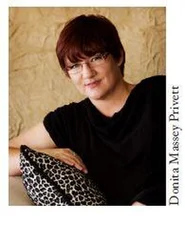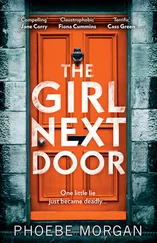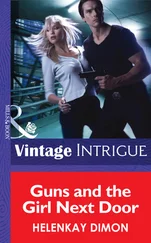A leisurely walk to the theatre seemed a good idea. She had nearly reached Shaftesbury Avenue when she realised she hadn’t eaten since her early lunch. Too late now. She would eat when she got home. Not everything could be achieved the first time of trying. The theatre was full, but there was her empty, inviting, well-organised seat. Halfway through the play she fell asleep and woke up only when the curtain was coming down for the last time.
Caroline Inshaw asked Michael if they could meet, at his home or in her London office. It must be somewhere private, a venue where they were not open to interruption, as this was ‘a matter of the utmost seriousness’. She had read the papers he had sent her, by now she knew all the facts and could gradually see her way to confronting Mr John Winwood. In her words, this needed ‘an in-depth discussion’ between them on the subject. Would he have an objection to this?
They agreed on the phone to meet at his home. DI Inshaw was to come at six. Michael had never undertaken anything in his whole life that brought him such dread, such stress and such shrinking pain. The night before she was due to come, he slept not at all. It was all he could do to stop himself pacing the rooms, then up the stairs and down again, until at last he lay in the dark seeing lights flashing and hearing a slow, dull movement like a train passing through the world’s longest tunnel. When morning came – late as it must in December – he sank into a sleep that was all dreams, and finally getting up, swore like poor Clarence that he would never pass another such a night, ‘though ’twere to buy a world of happy days, so full of dismal terror was the time’.
Arriving two minutes early, Caroline Inshaw told him he didn’t look well. ‘It’s nothing,’ Michael said. ‘A virus maybe. Isn’t that what everyone says?’
He was going to make her tea but she said no, she’d like a drink and maybe he should have one too. It would do him good. He thought how pretty she looked with her long black hair, her jeans and her white wool jacket over a blue sweater. When he was young, police officers never dressed like this as far as he could remember, but then hardly any of them were women. She took off her jacket and he felt pleased that the place was warm and comfortable for her.
She drank some of her wine, began talking about the hands in the box, said she supposed he knew the woman’s hand was his mother’s, immediately asking him if this brought him pain. He said yes but he was used to it by now. She had spoken to someone who had suggested that the other hand might have been that of a man called Johnson.
‘I knew a Johnson,’ Michael said. ‘Slightly. When we were children. He was one of the boys who was in the tunnels with us. But it’s a common name. He was William Johnson, called Bill.’
‘This one was Clifford. An army captain, a relation of the Johnsons who lived on The Hill, William’s uncle. He was killed in the war, in the Western Desert. Your William is a diplomat now, an ambassador.’
Michael digested this. He remembered Clara telling him about a Clifford Johnson, that he’d been an admirer of his mother. ‘One of the hands is his?’
‘It looks like it. We have a DNA match.’
‘A wonderful substance is DNA – is it a substance? – it’s like magic. A hundred years ago – well, less than a hundred – people would have seen it like that. Witchcraft.’
She wasn’t interested in any of that. Her eyes glazed over as people’s eyes did when growing bored. ‘Now I need to see your father. In a care home, is he?’ Michael nodded. It was simpler, easier, not to go into details.‘I need to put a great many questions to him. Will he talk to me?’
‘I think he may.’
She took another sip of her wine. ‘He should have someone with him, not just me,’ she said.
‘I will come,’ he said, feeling that sad and heavy sinking of the heart. ‘When do you want to go?’
‘How about Wednesday?’
CHAPTER TWENTY-FIVE
PERHAPS OTHER PEOPLE behaved like this. He didn’t know. This was what he did: he walked round the rooms and thought, when he saw the bookcase where Michael had stood reading the titles of the books, that’s where Michael was when we were so happy. Over there was where Rosemary threw that wine glass and we watched, loving each other. Out in the garden, standing side by side, holding hands, we watched the big dog fox come through the fence. Outside the front door I went to pick up the parcel the postman shouldn’t have left there but did, and when I went back into the hall Daphne came to me and put her arms round me.
Now I can’t go on. At first I thought it was the shock affecting me. What she told me passed through my mind and passed again and again. I told myself to think of something else, expel it, find a book to read, something compelling, interesting. Daphne’s house is full of books, but I couldn’t read. Not any more. I saw the young girl in love with a man three or four times her age. She was a child. Depraved, surely? Absolutely corrupt. She kept on asking me what was wrong. What had she done? I couldn’t tell her. I kept on saying to myself that this would pass away, I loved Daphne. All our lives we had been made for each other, destined one day to be together. A voice in my mind said, you fool. You wanted some excitement, you wanted the thrill of Daphne’s glamour. You’re old but so is she, a rich old woman, and now you’ve found out that her life has just been a saga of corruption. All those marriages, for instance, and how many lovers were there? You were too innocent and ignorant for her. She thought you would listen to her and smile, laugh; maybe she would tell you that you were the one of all of them that she truly loved.
The mistake was yours. You should have gone away from George’s house and left that card of hers lying on the floor.
They hadn’t all the time in the world. If Lewis had been twenty years younger and Melissa, say, ten years younger – not that he wanted her younger, she was perfect as she was – they could have let everything go slowly. She had been a widow only a matter of months. If he let the weeks pass, waited a fortnight and then phoned her, someone else might have snapped her up. She had been so kind to him, so helpful: ask her to come earlier, you’d like to meet her, wouldn’t you, and surely you want to talk to her about your uncle. So Lewis had phoned Noreen and been gratified to find himself speaking to a warm, expansive woman. She couldn’t come earlier, her flight had been booked, and no, it wouldn’t do to come straight to him, but she would phone him as soon as she was in England. Of course he had thanked Melissa for her help, they had gone out again and now they were going out on Thursday.
But the next step? What would that be? He thought, we forget these things. We’re in a restaurant and I say something about how wonderful it’s been to have met her and she says how lucky she is to have met me, or something like that. We go home in a taxi and I go into her house and after we’ve had a drink or something I give her a kiss on the cheek and say I’ll call her tomorrow and then I leave. But I haven’t all the time in the world.
He didn’t know how to behave, he didn’t know what to do. He had been married for years and years, decade upon decade, and if he ever knew he had now forgotten. He didn’t know the words to use. He didn’t know how to tell her how much he liked her, and more than that, how he missed her. How could he tell her how it hurt him when she went into her house and closed the front door behind her? When he was young he used to read a lot. He always had a book, a novel, and it was full of love and pain and words, words, words. Where were those books now? Lost, parted with, disposed of to second-hand bookshops – all except The Count of Monte Cristo , and he’d read that too often. Except for that, he hadn’t read anything except the evening paper and the Spectator and the Sunday Times for years. He thought he would never learn how to ask her. And what would he ask her? Would he ever recognise the opportunity when it came? Might it be better for him not to phone her again, just to keep away from the phone, not to answer it if it rang? He would only do something that made him feel a fool.
Читать дальше












